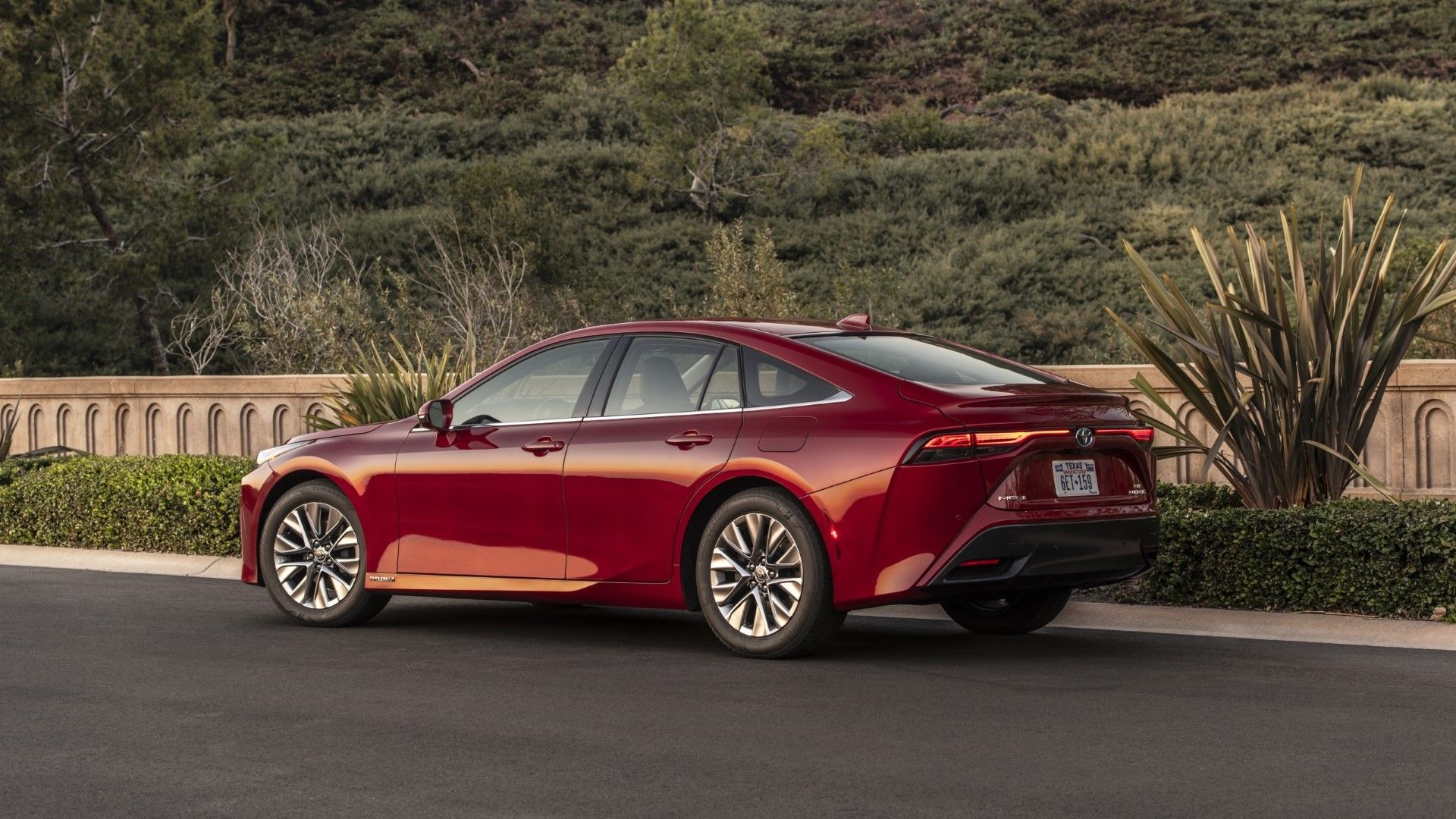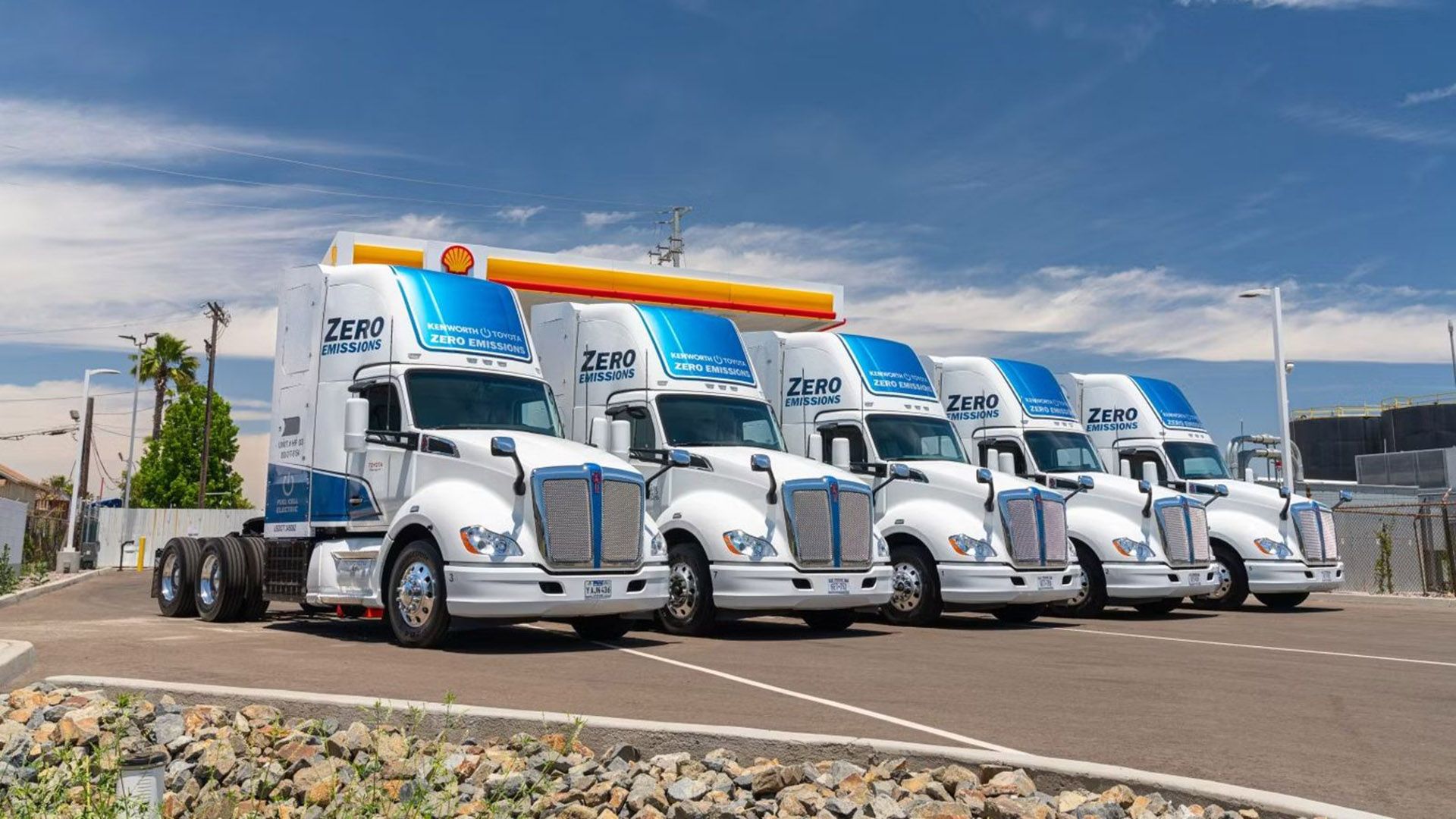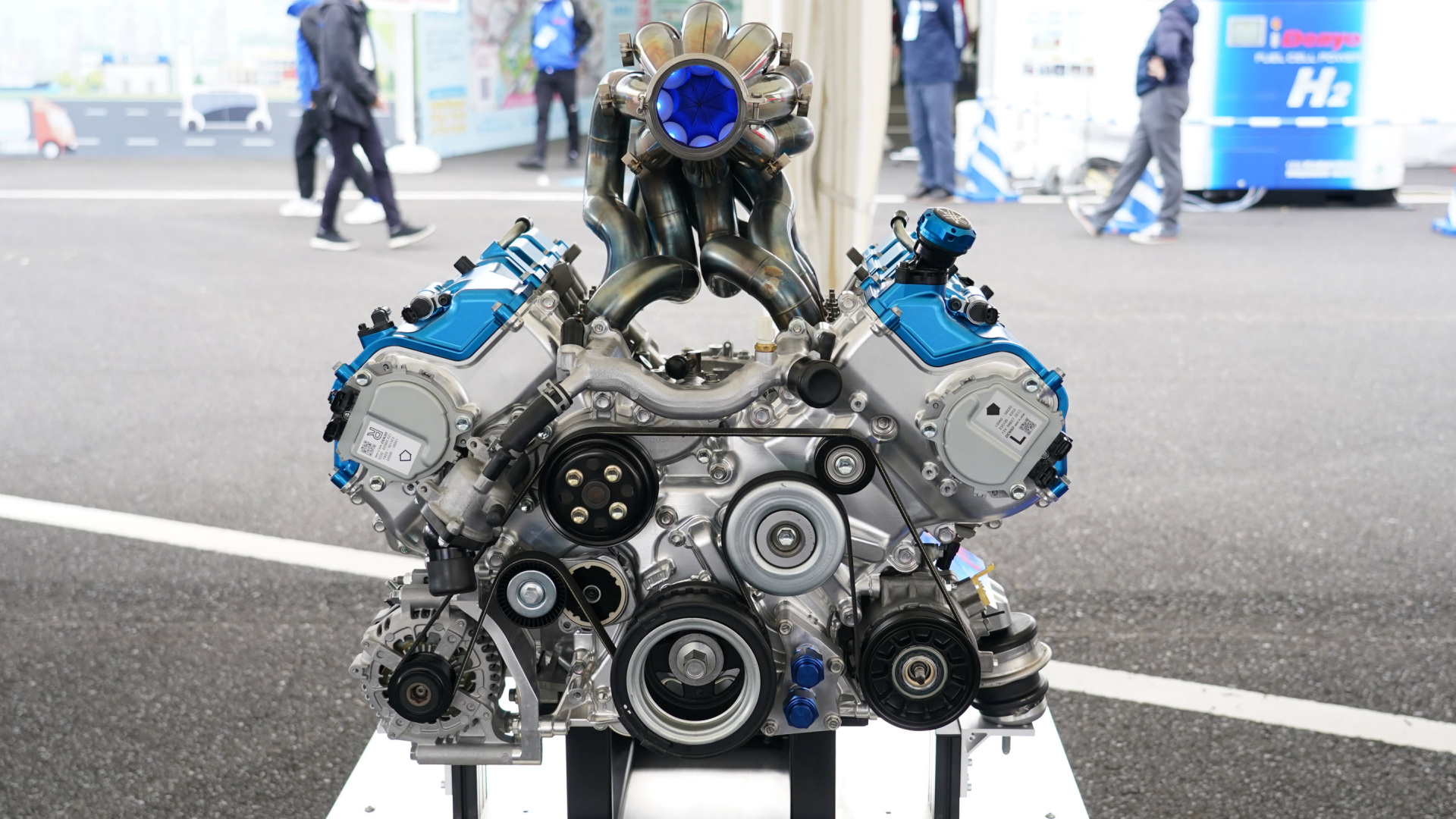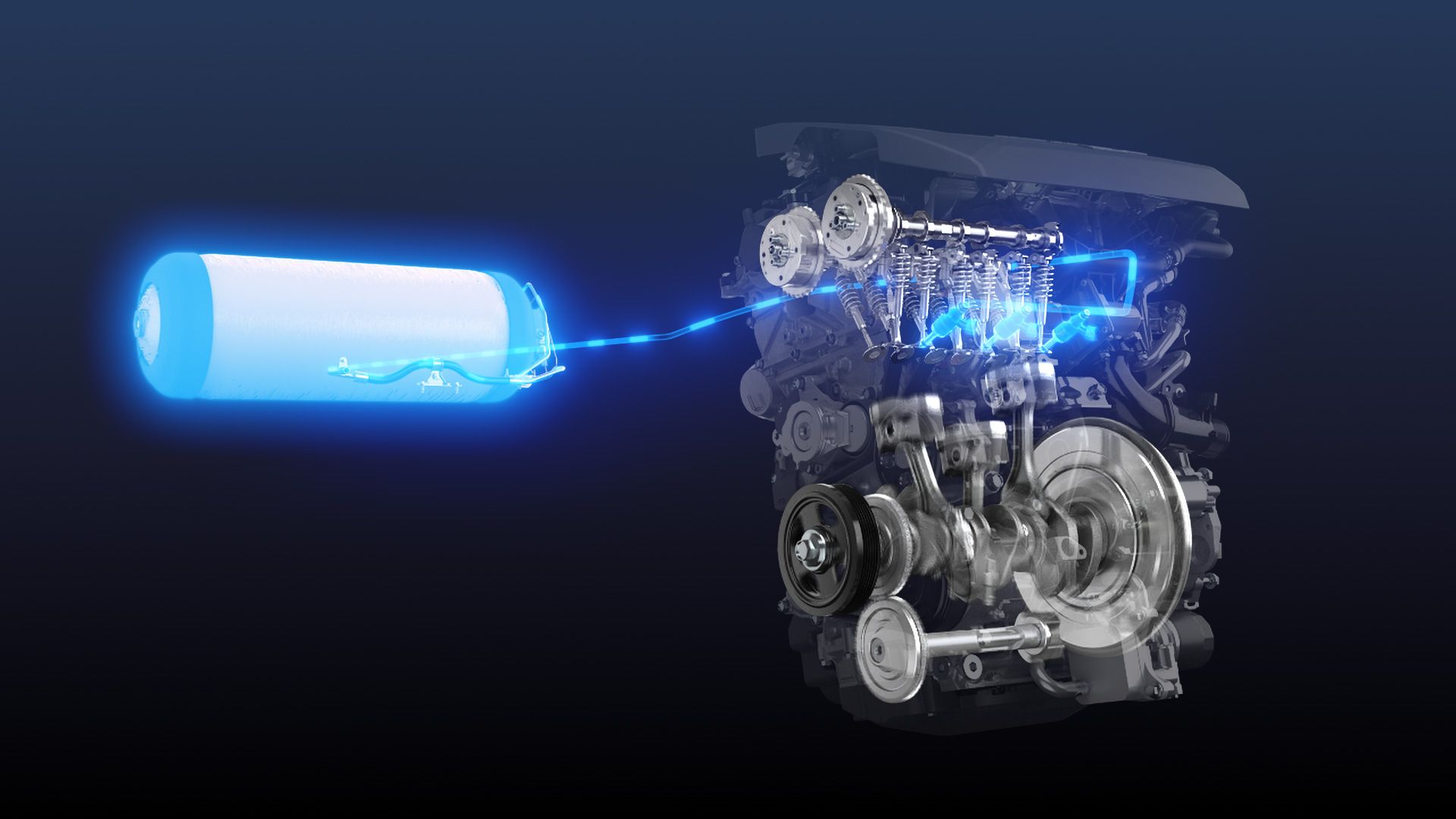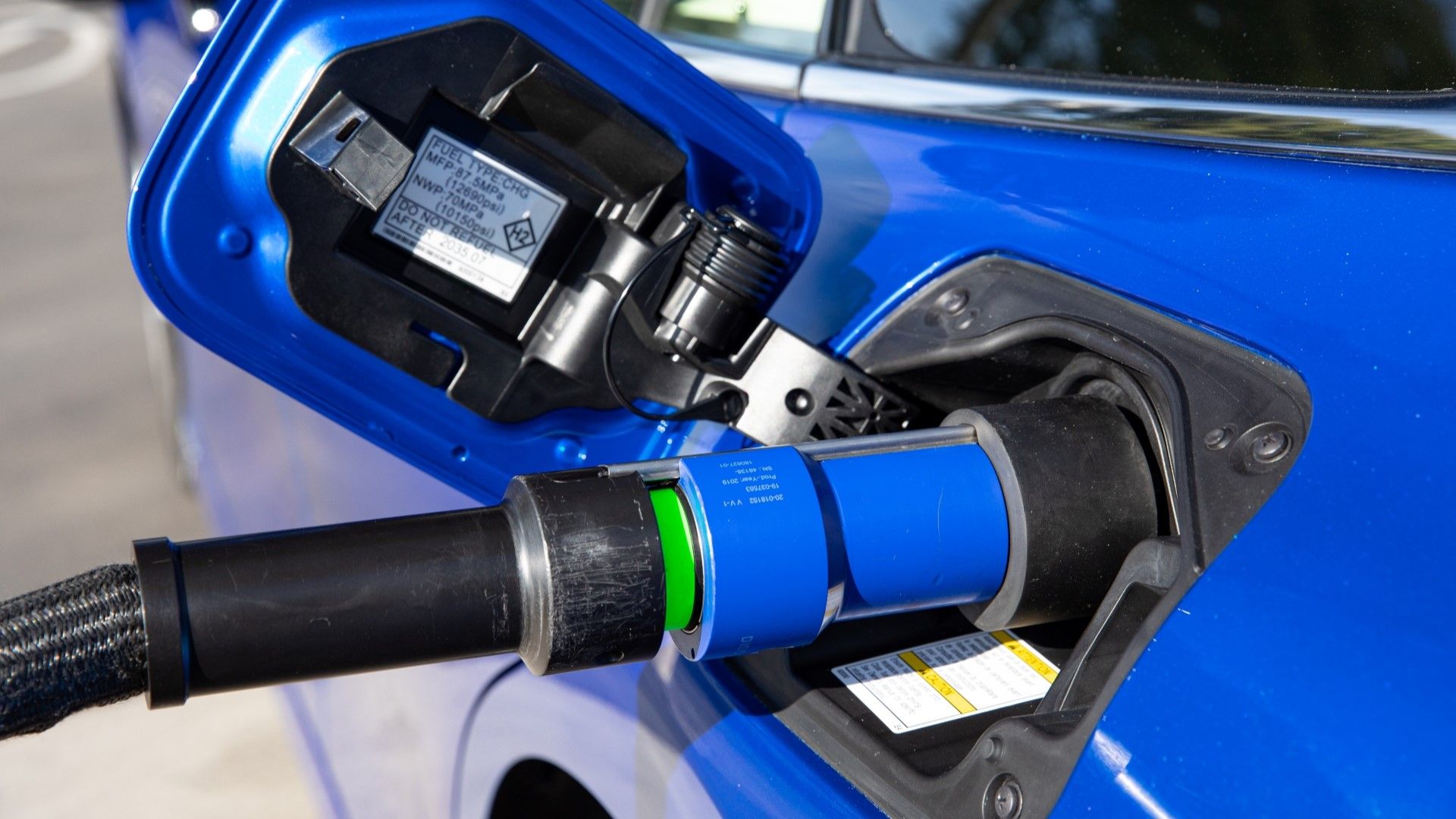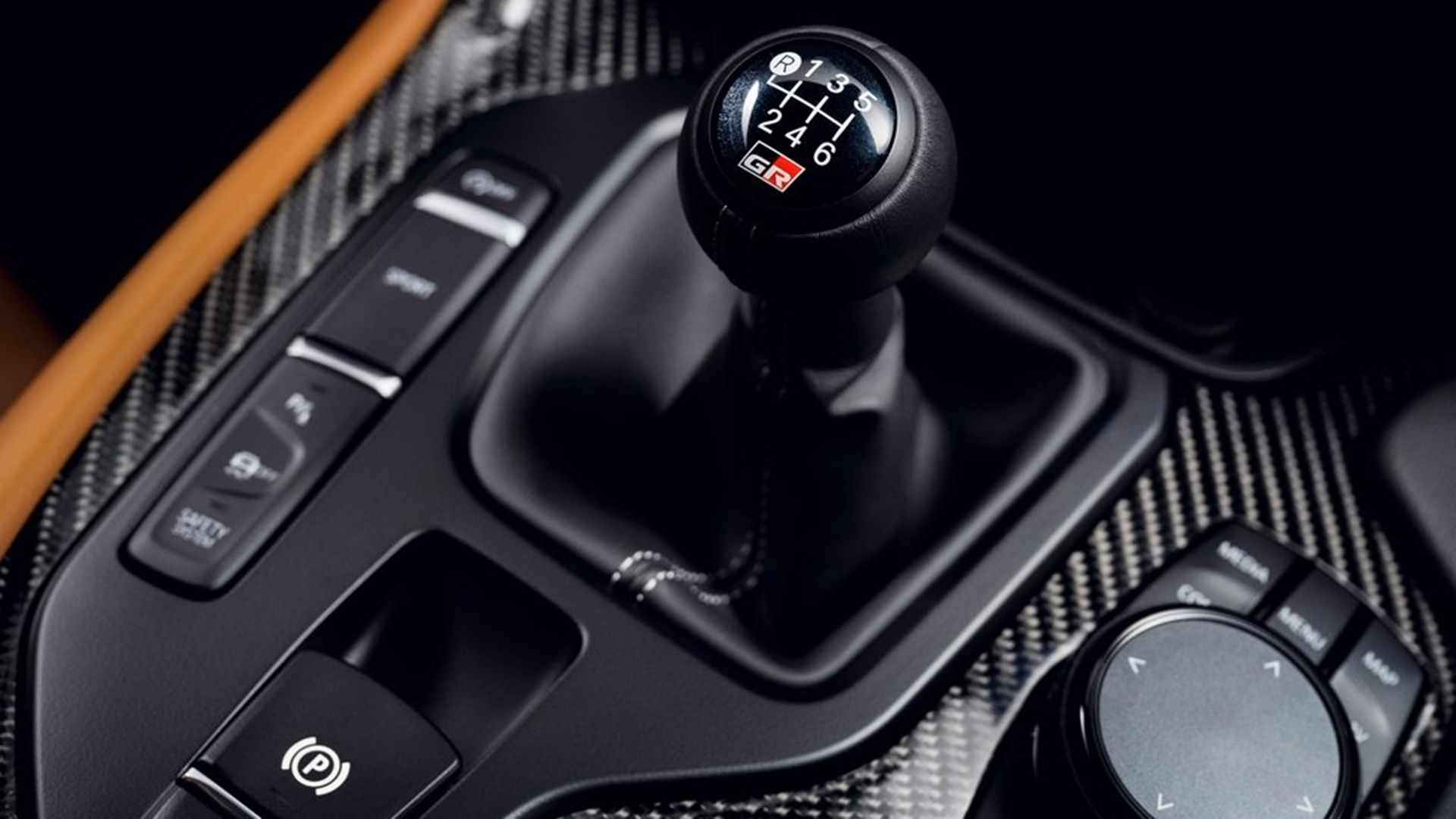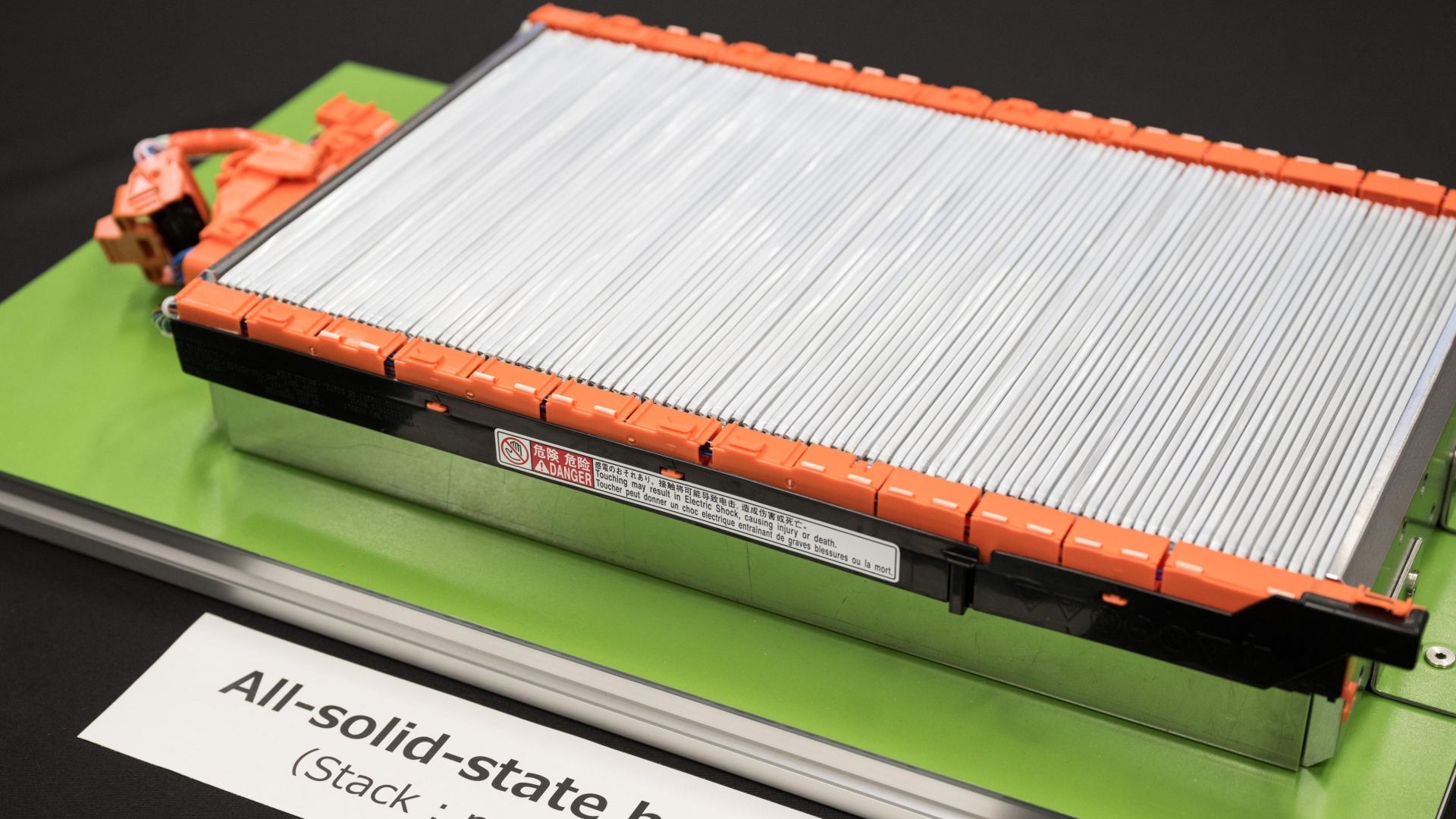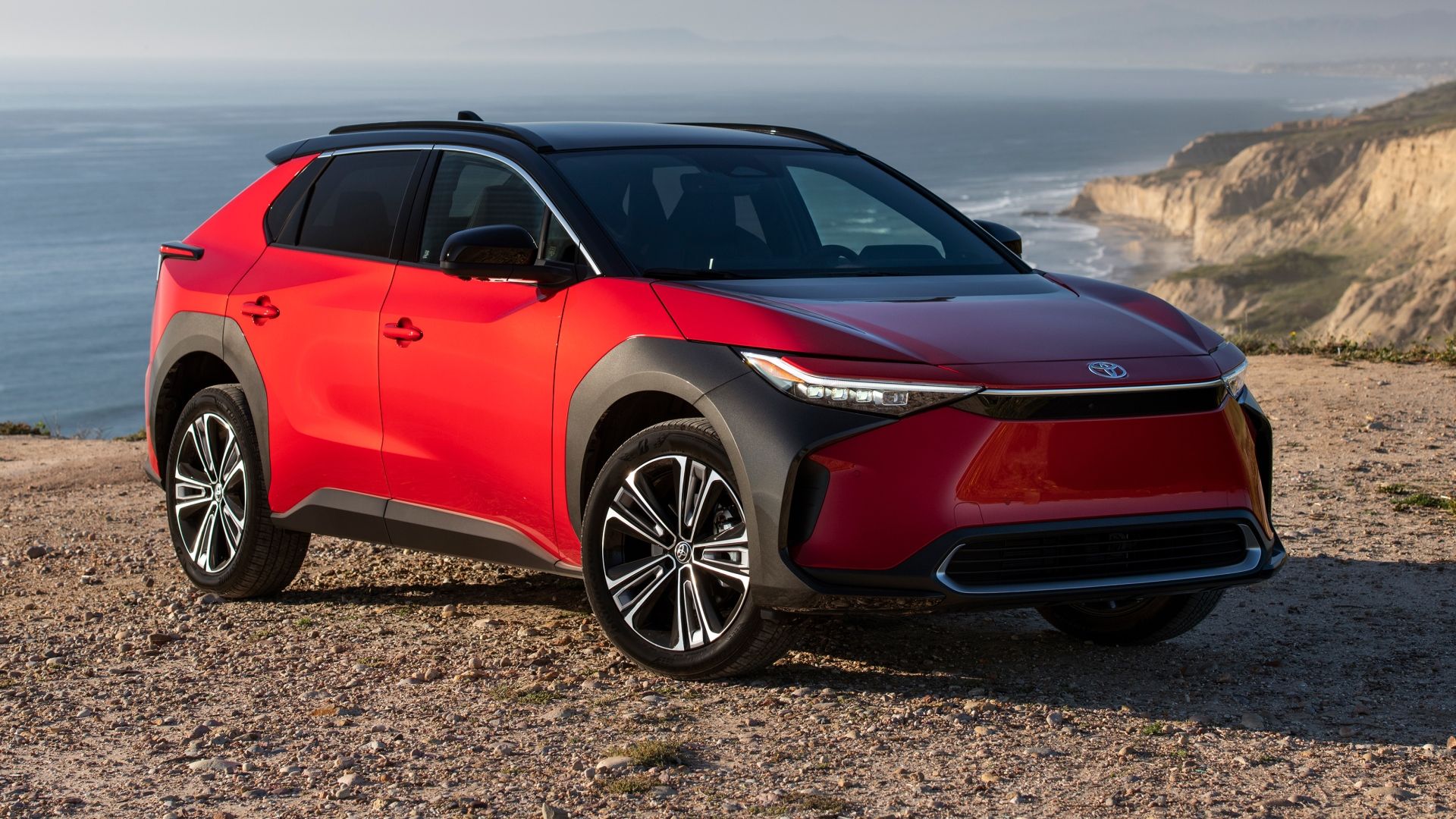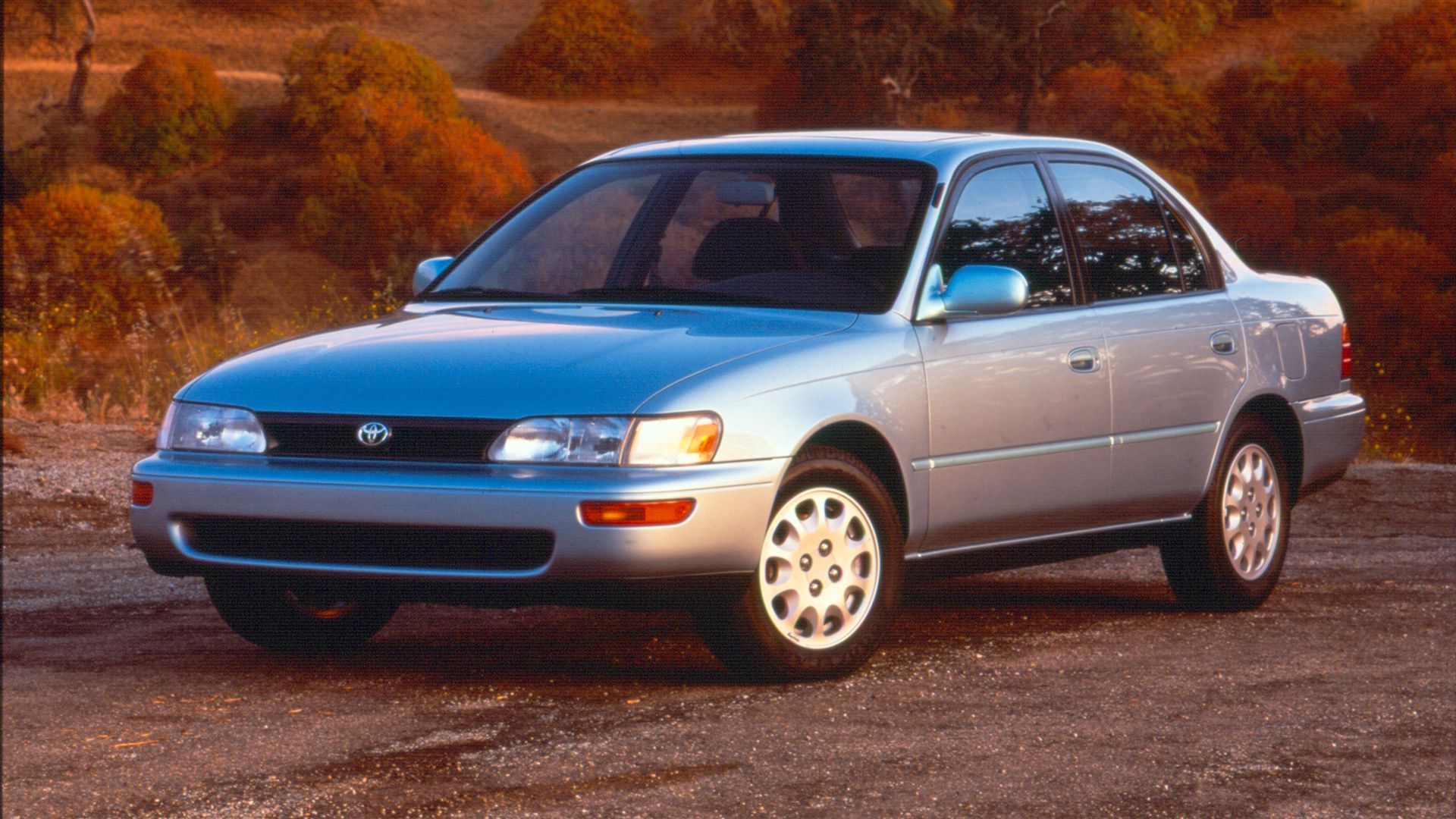[ad_1]
Toyota hasn’t been as active as most automakers when it comes to producing BEVs, and it doesn’t look like it will change drastically in the future. The Japanese stalwart of automotive reliability has taken an uneven and sometimes hesitant approach to moving beyond engines. The company got a dazzling start when it introduced the car-buying world to hybrids in 1997, but technological progress has been uneven ever since (though its profits have been as plentiful as ever).
The company has focused on hydrogen (both in fuel cells and combustion engines) and solid-state EV batteries. Essentially, Toyota seems to be letting its present-day profits fund its long-term plans, and here’s how that could play out.
In order to give you the most up-to-date and accurate information possible, the data used to compile this article was sourced from various manufacturer websites and other authoritative sources, including Car and Driver, MotorTrend, and Hagerty.
2:42
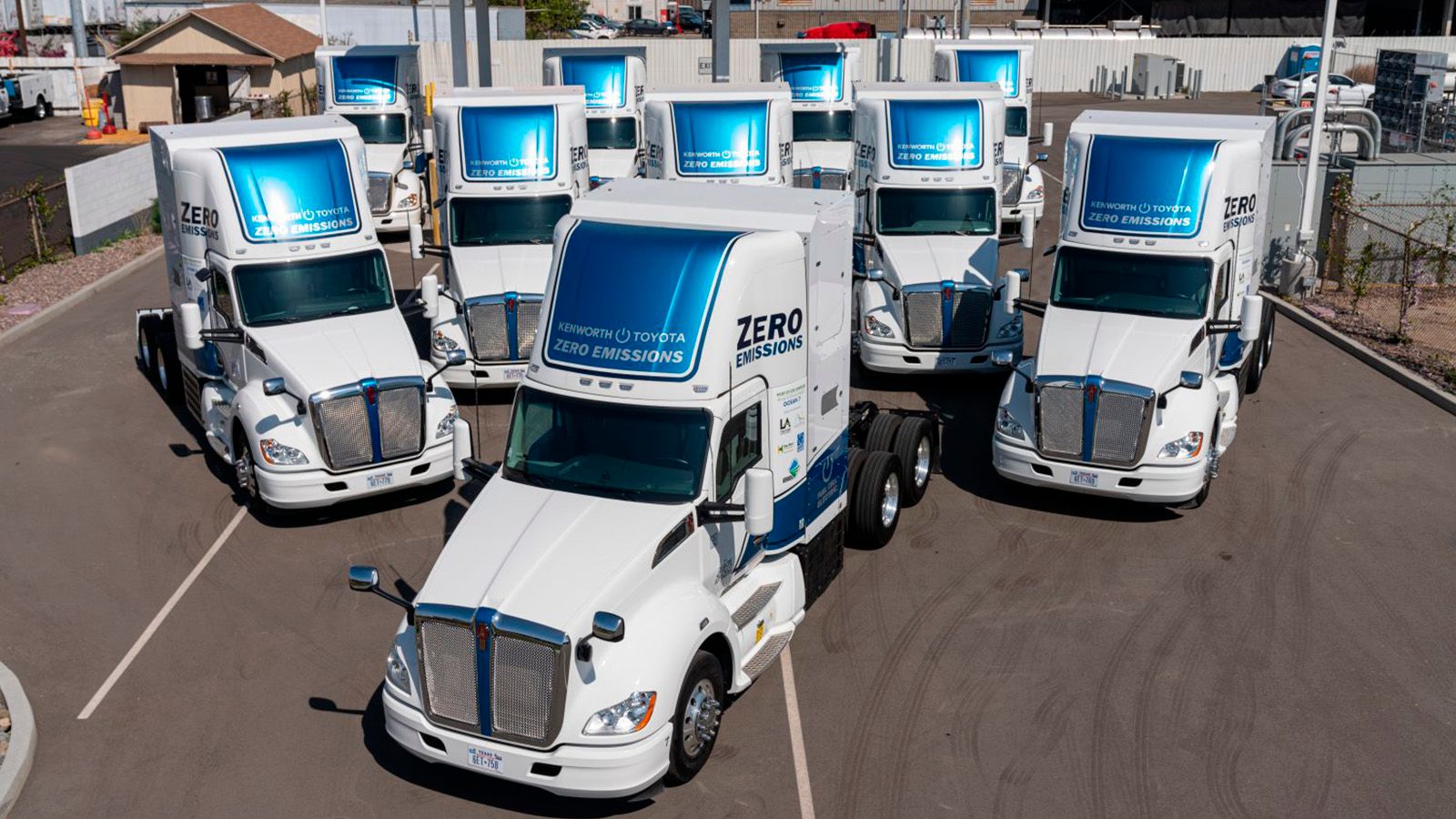
10 Things To Know About Toyota’s Hydrogen Combustion Engine
Toyota has been working on hydrogen technology for a long time now, and here’s everything you need to know about its hydrogen combustion engine.
Toyota Is The De-Facto Leader In Hydrogen Cars
- Toyota has established itself as the unofficial leader in hydrogen cars.
- Toyota’s investment in hydrogen cars means that it has taken over the market before any competition arrived.
- Toyota is also investing in hydrogen-powered commercial trucks.
Toyota has positioned itself as the de-facto vanguard for hydrogen. The Mirai hydrogen sedan may not be the first fuel-cell car ever introduced, but it has shown the most staying power. Even though Mirai sales remain small even where hydrogen fuel is available, the long and ongoing production run has given Toyota over a decade to prove that its hydrogen cars are as reliable as everything else it produces. Indeed, the Mirai has been in production long enough to get a design revision, though the changes were more of a facelift than a mechanical redesign.
Even the most assiduously devout hydrogen skeptics have been forced to admit that Toyota’s hydrogen cars, for all their shortcomings, are just as reliable as any twenty-year-old Corolla. There simply is no history of Mirai failures for any aspiring naysayer to point to.
Toyota Is Getting In On The Market Before Any Competition Arrives
Toyota’s devotion to hydrogen cars may seem foolish and perhaps a bit quixotic. But in reality, the company is getting a share of the hydrogen market before it exists. While hydrogen sales are currently limited to a few cities around the world, an EU mandate is about to make it a lot more accessible to an entire continent of people.
The European Union has mandated that hydrogen fueling stations be placed every 150 kilometers on Trans-European Transport roads by 2030. This means that across the EU, FCEV dealers will no longer fear the sales-killing question: “But where do I fill the tank?” While other manufacturers may have to scramble to get hydrogen cars out there and come up with the marketing to introduce the public to them, Toyota would merely have to increase production.
Toyota Is Investing In Hydrogen-Powered Commercial Trucks
Toyota has been looking outside of passenger cars. The company has partnered with trucking conglomerate PACCAR to develop fuel-cell semi trucks. Toyota essentially put two Mirai powertrains into a Kenworth T680. (Perhaps the real story here is that two Mirais have enough horsepower and torque to move a semi truck. Horsepower hounds, take note.)
Hydrogen may be a more natural fit for trucking than it is for passenger cars. Fuel cells are at their best when cruising at a steady speed, and can struggle to power the car when the driver floors the accelerator (FCEVs have batteries to supply extra surges of power when needed). Additionally, it is easier to put hydrogen pumps at truck stops on highways than to build a hydrogen station in every town across the country.
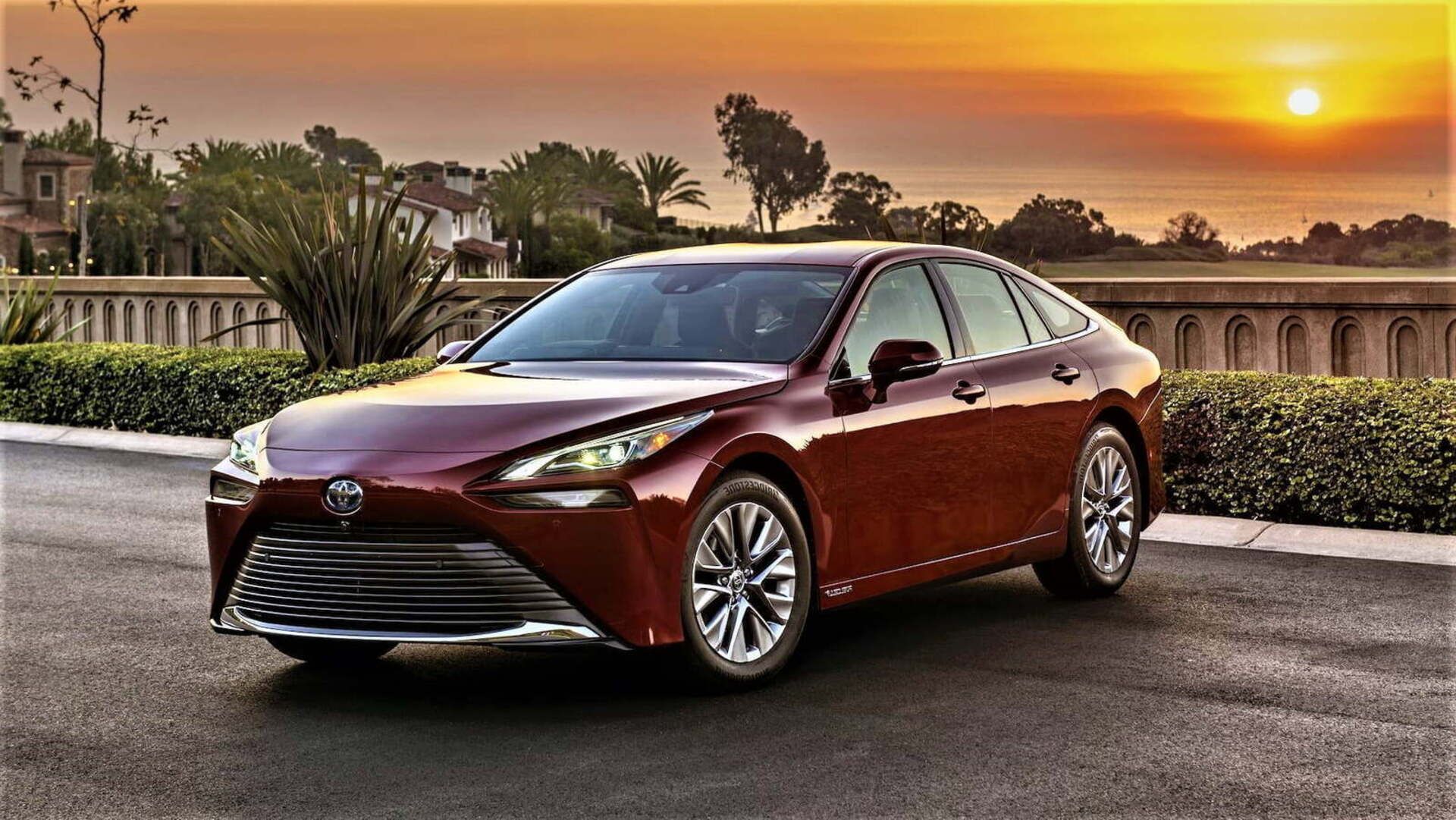
Why Toyota Is Hellbent On Keeping The Hydrogen-powered Mirai Alive Despite Its Poor Sales
In eight years, the Mirai only sold 14,000 examples. However, Toyota is keeping it alive, and pushing for more hydrogen vehicles, here’s why.
Toyota Is Developing Hydrogen Combustion Engines
- Toyota is developing internal combustion engines that run on hydrogen. These engines could carry on Toyota’s long history of engines that never die.
- Hydrogen combustions could save manual transmissions from extinction.
In addition to fuel cells, Toyota has been experimenting with burning hydrogen in engines. The company is particularly enthusiastic about using hydrogen combustion engines in racing, where Toyota’s hydrogen-converted cars have been well received.
Racing is perhaps a more natural place than daily traffic for hydrogen engines. Fuel cells simply get more energy out of the hydrogen than engines do. It’s hard to issue a volley of press releases about “sustainability” when recklessly burning gas. However, efficiency is at most a secondary concern with race cars. When a car is driven at most a few hours a month, it’s not so extravagant to burn extra fuel in the name of those delicious “vroom-vroom” sounds.
Hydrogen Engines Continue Toyota’s Long Legacy Of Indestructible Powertrains
It must also be pointed out that Toyota engines famously never die. There’s more than a kernel of truth in the jokes that the universe will end and somebody’s 1995 Corolla will still be floating in the void of space in perfect running order. With that in mind, a hydrogen combustion engine is a sounder move for Toyota than it would be for many other automakers. Prospective car buyers would know that the car’s engine came from the same company that manufactured all those Tacomas that routinely clear 300,000 miles without an engine swap.
Hydrogen Combustion Engines Also Mean That Manual Transmissions Don’t Need To Die Out
Hydrogen engines may be the answer to prayers that enthusiasts did not know they were making. After all, unlike electric motors, an engine can be mated to a manual transmission. This means that hydrogen combustion engines just might be what allows that small yet devout sect of drivers to smugly boast about “being one with the machine” long after the world’s supply of cheap gasoline has dried up. While enthusiasts are not a profitable market segment (Porsche got into family-schlepping SUVs for a reason), they are always a good source of publicity.

How Hydrogen Combustion Engines Will Challenge The EV Market At Its Core
Hydrogen combustion engines challenge EVs with rapid refueling, longer range, and broader sustainability.
Toyota Is Planning For The Future Without Playing Catch-Up To The Present
- Toyota is not rushing into EVs. Its current profits justify this choice.
- Toyota may introduce a simulated manual transmission for EVs.
- Toyota is still working on its long-awaited solid-state batteries.
- The 2024 Paris Olympics will be a showcase for Toyota’s hydrogen vehicles.
Toyota seems to be letting its current line of vehicles go on with little change for the time being. Given the company’s wild profits, this means that Toyota has ample money to put into research and development. Toyota can afford to spend many long years on its EV-related projects without running into a ruinous lack of funds.
Toyota’s Simulated Manual Transmission Shows That It’s Getting Creative With Its Future EVs
Those who ultimately leave engines behind and switch to EVs may not need to forsake their beloved “fun-stick.” In an out-of-character burst of whimsy, Toyota developed a simulated manual transmission for EVs. If the ersatz transmission goes into production, it will allow drivers to row through the gears like nothing under the hood ever changed. But, the most delightful part is this: if the driver does not shift properly, the car would genuinely stall out. (There is no word on whether Toyota will offer an undercarriage smoke generator to simulate burning the clutch.)
For anyone who dearly cherishes their ability to drive stick, Toyota may be the company that lets them carry their driving skill into the EV era. But more importantly, the simulated manual transmission shows that Toyota is willing to step out of the middle of the road; or at least, to let its design department have some fun. This may result in some truly engaging EVs in the next few years.
Toyota Is Still Working On Solid-State Batteries
Perhaps Toyota’s most notable long-term EV project is its long push to develop a solid-state EV battery. Although Toyota has produced a glass vial of electrolytes and a photograph of a prototype battery, the company’s progress with solid-state batteries has been almost maddeningly slow.
Toyota had initially announced that it would show its SSB at the 2020 Tokyo Olympics, but was absent without comment when the games finally happened a year later (the pandemic caused a 12-month sports delay). However, Toyota intends to have a production-ready solid-state battery by “2027-2028.”
Toyota Is Bringing Hydrogen Cars To The 2024 Paris Olympics
If Toyota flubbed the 2021 Olympics by failing to bring its promised solid-state battery, it is looking to compensate with its plans for the 2024 Paris Olympics. The company has secured a plum of a promotional contract, and gets to use the upcoming games to show off the versatility of its hydrogen systems.
Toyota will be providing unspecified hydrogen-powered vehicles including buses, trucks, boats, forklifts, and 500 Mirai sedans. Toyota is sending an additional 2,174 electrified vehicles (“electrified” is Toyota’s catch-all term for hybrids, FCEVs, and BEVs) to Paris.
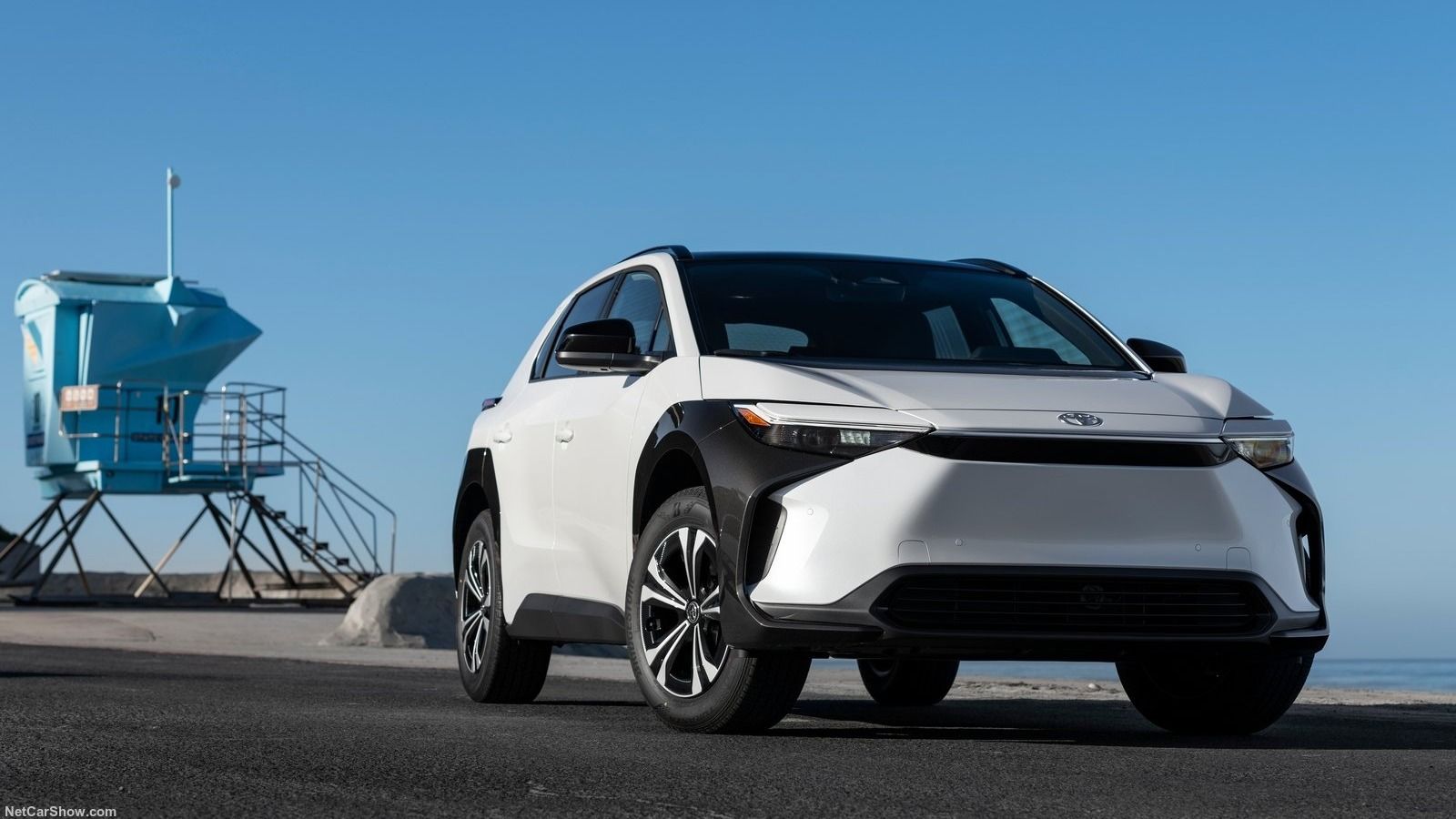
Toyota Solid-State EV Batteries: Timeline, Costs, And Environmental Effects
Japanese automaker Toyota has been testing solid-state technology in EVs for many years now. Here’s what you need to know.
Toyota’s Slow EV Development Makes Sense When It Comes To Reliability
Perhaps the only frustrating thing about Toyota’s EV development is its almost maddeningly slow rate of progress. Aside from an electric variant of the RAV4 offered from 2012 to 2014, Toyota’s only EV to actually hit dealer lots is the bZ4X SUV. No amount of enthusiastic press releases can make up for such scant tangible offerings.
However, this slow pace is why Toyota is so successful. It allows Toyota to thoroughly test absolutely everything and ensure that it will be dependable. Toyota’s biggest asset is its reputation for cars that never break down. It’s difficult to sell a 20-year-old Ford Focus, but savvy customers don’t think that a 20-year-old Corolla has been fully broken in. Toyota’s refusal to rush development is a big reason why the company is so successful today.
Toyota’s Slow Development Is Why Its Cars Never Die
It must also be noted that while Toyota may enjoy some of the highest sales of any car company in the world, its cars are rather unremarkable (in a good way) aside from their famous ability to keep running. Very few people get excited about a Camry or a RAV4.
However, Toyota’s unexciting vehicles (aside from a few flirtations with sportiness like the Supra) get respectful nods from automotive connoisseurs because they never die. It is notoriously difficult to get enthusiasts to appreciate a middle-of-the-road family hauler, but Toyota almost always does it. In mundane market segments where every vehicle looks the same, Toyota’s offerings stand out for their legendary resilience.
In other words, Toyota’s reliability is its biggest competitive edge. If Toyotas became just as finicky as vehicles from other manufacturers, the company would lose its main selling point. With that in mind, it only makes sense for Toyota to develop its future EVs at a careful pace instead of rushing everything.
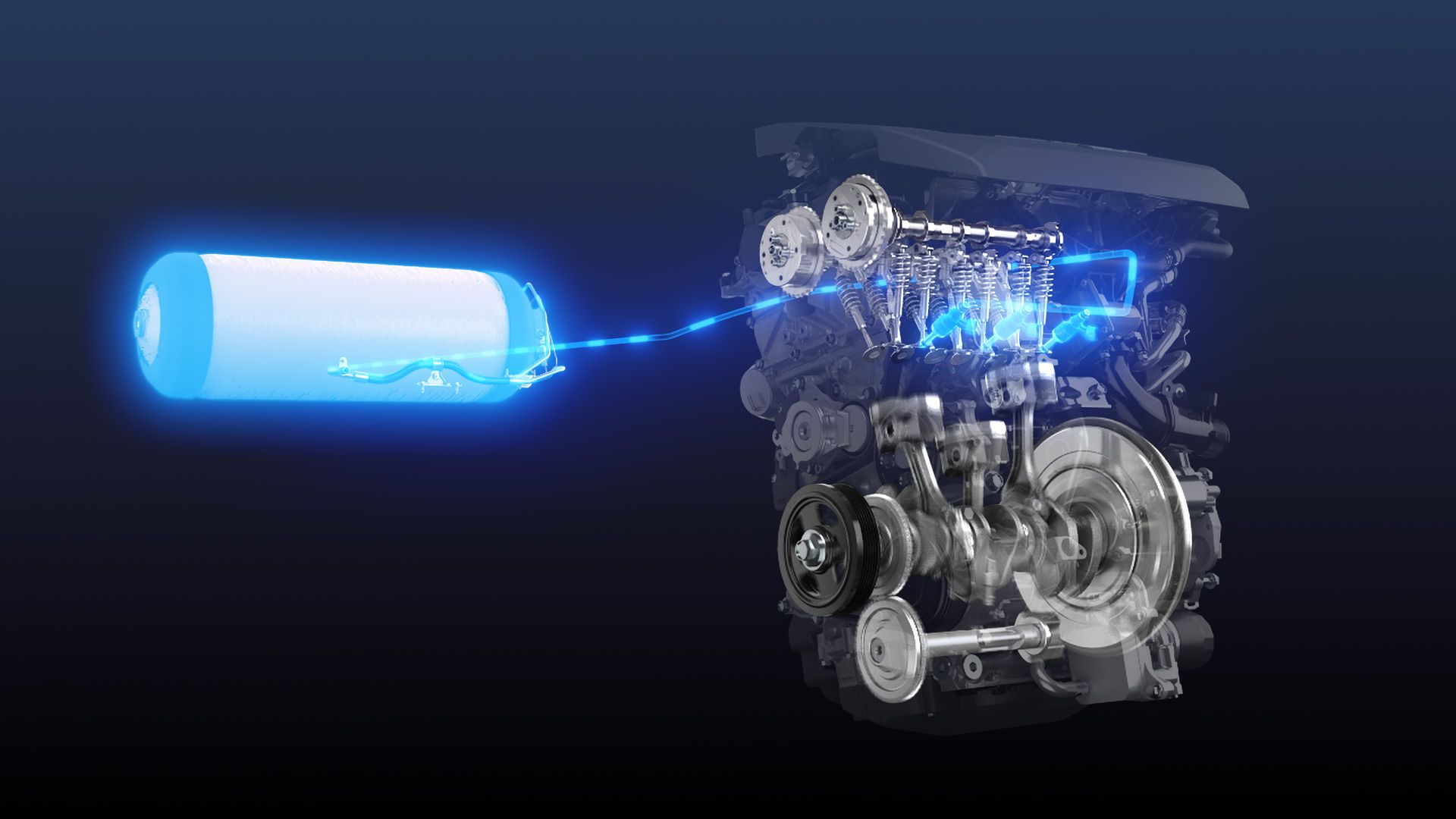
10 Companies Deeply Invested In Hydrogen Combustion Engines
With the ever advancing movement towards a totally sustainable transportation future, hydrogen has risen as a very viable alternative to batteries.
Toyota Is Preparing For The Future While The Present-Day Profits Are Good
While other automakers are rushing into the BEV market, Toyota is taking a more speculative approach. Given its focus on hydrogen and SSBs, the company is essentially gambling on technologies that aren’t ready for mass-production yet. It should be clear that Toyota isn’t avoiding EVs. Instead, the company is being very careful as it prepares for the future- regardless of whether said future involves batteries or hydrogen.
All said, this doesn’t mean Toyota is shying away from BEVs. Its recent $1.3 billion investment in its Kentucky factory in the U.S. is a testament to that. The emphasis on hydrogen technology means that Toyota doesn’t think BEVs alone will rule the market. Either way, Toyota has a foot in both the camps and it’ll be interesting to see where the automaker lands in the end.
[ad_2]
Source link
